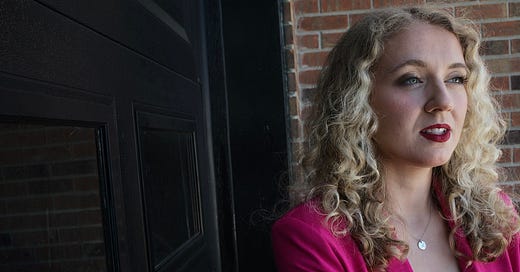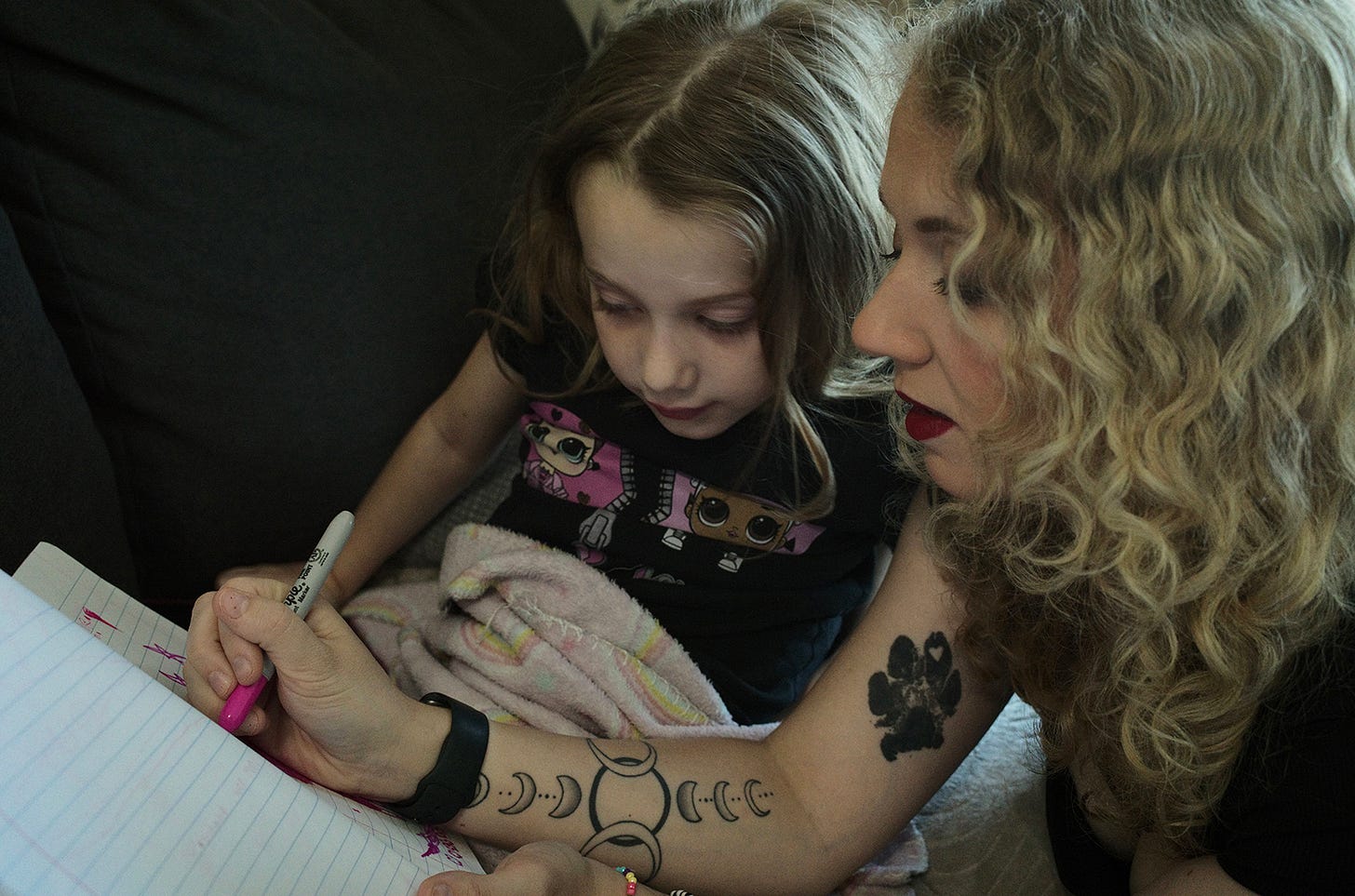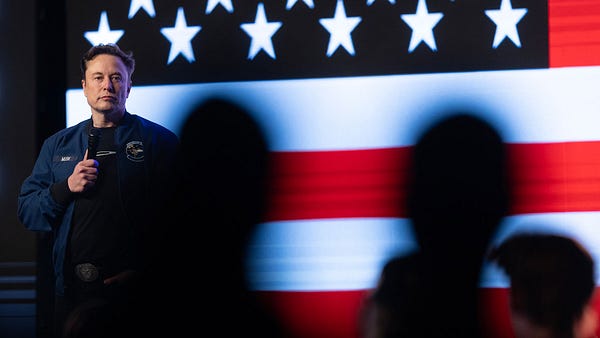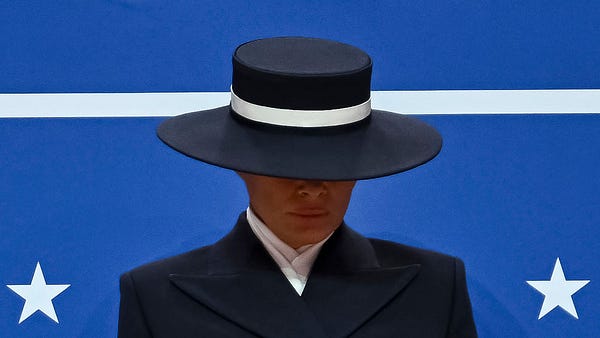
Allie Phillips, 29, was almost five months pregnant in February 2023 when she and her husband, Bryan, learned that their baby would not survive outside the womb—and her health could suffer if she carried the child to term. In Tennessee, where the couple lives, abortion is illegal, even for women carrying fetuses with fatal birth defects. Allie and Bryan, who live paycheck to paycheck, had to crowdfund so that she could travel to New York City for the procedure. After she arrived, she learned that their baby had already died—and she was in grave danger of developing sepsis.
Eight months after her ordeal, Allie announced she planned to run for a seat in the Tennessee state legislature, so she can pass a law that clearly sets out exemptions in her state’s abortion ban. She has named her initiative “Miley’s Law,” after the daughter she never got to meet. Here’s Allie:
CLARKSVILLE, TENNESSEE — As the doctor broke the news to my husband and me, I couldn’t take my eyes off the ultrasound screen. First there had been tiny toes, then tiny fingers, then my baby’s face. But now I was staring at the thick line across her brain, which wasn’t supposed to look like that.
The doctor told us our baby had semilobar holoprosencephaly, a birth defect that occurs in 1 in 250 conceptions, with only three percent of fetuses surviving until birth. Her brain had not developed properly. Nor had her kidneys, her stomach, her bladder. Her heart was beating, but it was only half a heart. If she defied the tiny odds of being born alive, she would likely have severe facial deformities, perhaps just one eye. She would almost certainly die within six months.
“I’m so sorry,” the doctor concluded about my daughter, “but she’s not compatible with life outside the womb.”
The grief had barely hit me when I was told I had two options: I could continue the pregnancy—but the longer I stayed pregnant, the greater the danger to my own health. The doctor was vague about the risks, but later I learned that if Miley died inside my womb, I could develop sepsis, which could scar my reproductive organs and leave me infertile. It could even kill me.
The second option was to terminate the pregnancy. But, as my doctor said, “You can’t do that here.”
That’s because we live in Tennessee, where abortion is banned except to save the life of the mother or, as the law states, “to prevent serious risk of substantial and irreversible impairment of a major bodily function of the pregnant woman.”
In other words, I wasn’t in enough danger to have an abortion. At least not yet.
“You’re going to have to look at another state,” the doctor said, choosing her words carefully. I don’t blame her: the law in Tennessee is so imprecise, and any doctor who performs an abortion can be arrested and charged with a felony punishable by up to 15 years in prison.
“I can’t offer you any resources,” the doctor told me. “You’ll have to do that on your own.”
When she left the room, I crumpled. Bryan silently held my hand as I sobbed. He was the one who had to call my mom.
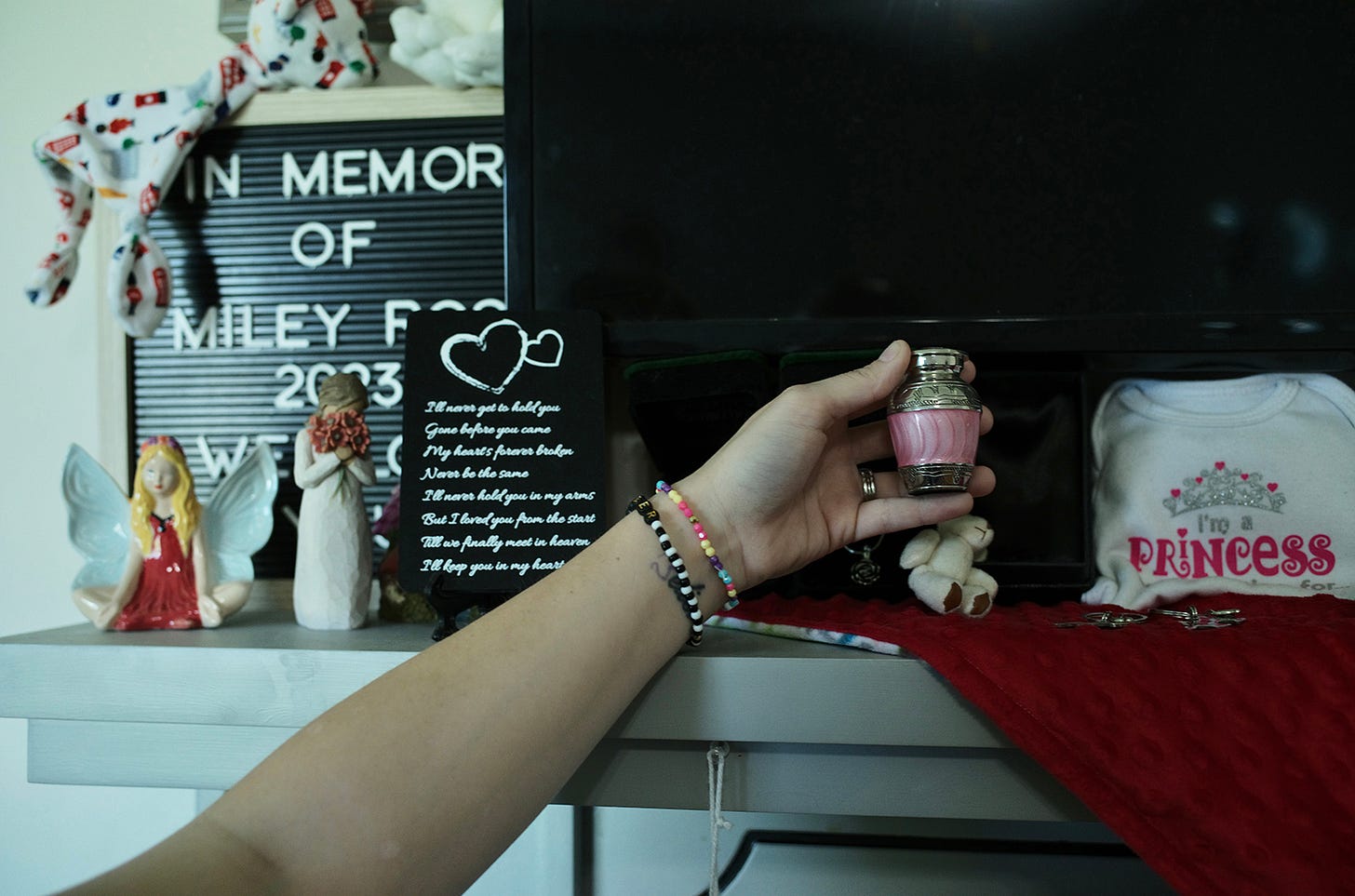
When Bryan and I got married in March 2022, we decided house first, baby second. In the summer, we stepped into a three-bedroom home on a quiet street in Clarksville, Tennessee, and I said to Bryan: “I can imagine a baby crawling around here.”
Adalie, my six-year-old daughter from a previous relationship, claimed the room next to the master bedroom. The third bedroom would be the nursery, eventually. Or maybe immediately: a few days after we moved in, on Halloween, I found out I was already pregnant.
We got the news that I’d be having a girl during my 15-week sonogram, and Bryan and I started calling our baby Miley (after our beloved Miley Cyrus). We told Adalie, “You’re going to have a little sister.” Ever since then, whenever anyone asks her what she wants to be when she grows up, she says, “A big sister!”
But then, at 19 weeks, I went for a routine scan, and my ob-gyn told me that Miley was far smaller than expected, and I’d need to see a specialist to work out why. A couple days later, I was staring at the outline of Miley’s brain on the ultrasound screen as the doctor explained the terrible choice I had to make.
That night, Bryan and I discussed the appalling scenarios with my parents. What if Miley died in my womb, and I didn’t realize? What if I got an infection, and it made me infertile? What if I died?
I also found myself wondering: What if the doctors were wrong? I wanted to believe I could fight for her life; Miley wasn’t just my daughter, she was Bryan’s, too. But it was the thought of Adalie that made the decision for me. I couldn’t risk letting her grow up without a mom. I decided to terminate the pregnancy.
By that point, it was late on a Friday evening. I’d have to get through the weekend before I could call any clinics. In the meantime, I found an ultrasound studio that could digitally record Miley’s half a heartbeat, so I could listen to it forever.
I also had to tell my daughter, “Miley’s really, really sick. We have to let Miley go.”
“But I wanted my little sister,” Adalie said.

